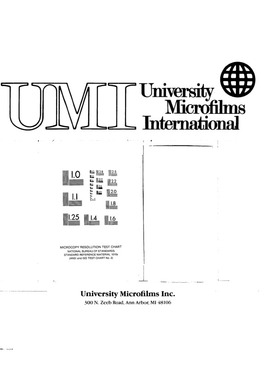| dc.contributor.author | Brocato, Frank C., | en_US |
| dc.date.accessioned | 2013-08-16T12:29:24Z | |
| dc.date.available | 2013-08-16T12:29:24Z | |
| dc.date.issued | 1985 | en_US |
| dc.identifier.uri | https://hdl.handle.net/11244/5375 | |
| dc.description.abstract | Analysis of the mean scores of compatible and complementary teams utilizing a t-test revealed a statistically (p. > .05) significant difference in performance of the ambiguous task. Compatible teams performed the task more efficiently, complementary teams performed the task more effectively. These findings were consistent with the alternate hypothesis stated for this task. | en_US |
| dc.description.abstract | The instruments utilized to collect data for the study were the Myers/Briggs Type Indicator and a structured and ambiguous task designed by the researcher. The MBTI was administered to randomly selected superintendent/principal teams in school districts in a southwestern state. From this sample, ten (10) compatible and ten (10) complementary teams were selected to complete the structured and ambiguous task. The structured task utilized in this study was the completion of two school bus routes. The ambiguous task was to review a case study, make a consensual decision, and write a position paper defending that position. Efficiency for both tasks was determined by time in task. Effectiveness of the structured task was determined by the total number of miles required to complete the routes. Effectiveness of the ambiguous task were determined by three judges assigning scores to the position papers based on a predetermined set of criteria. | en_US |
| dc.description.abstract | A t-test analysis of the data generated by the structured task revealed there were no statistically significant differences (p. > .05) in the mean efficiency or effectiveness scores of compatible or complementary teams. | en_US |
| dc.description.abstract | The purpose of this study was to test the predictive power of the presumption that suggests groups of complementary (different) psychological types will perform different types of task more efficiently and effectively than groups consisting of compatible (similar) psychological types. | en_US |
| dc.description.abstract | Implications for management decisions and roles when compatible and complementary teams exist in organizations are discussed. Implications for the utilization of a complementary task team in a creative organization is also discussed. | en_US |
| dc.format.extent | vi, 117 leaves ; | en_US |
| dc.publisher | The University of Oklahoma. | en_US |
| dc.subject | Public schools Management. | en_US |
| dc.subject | Education, Administration. | en_US |
| dc.title | Psychological type and task accomplishment in the public school management team / | en_US |
| dc.type | Thesis | en_US |
| dc.thesis.degree | Educat.D. | en_US |
| dc.note | Source: Dissertation Abstracts International, Volume: 46-12, Section: A, page: 3544. | en_US |
| ou.identifier | (UMI)AAI8602712 | en_US |
| ou.group | Jeannine Rainbolt College of Education | |
